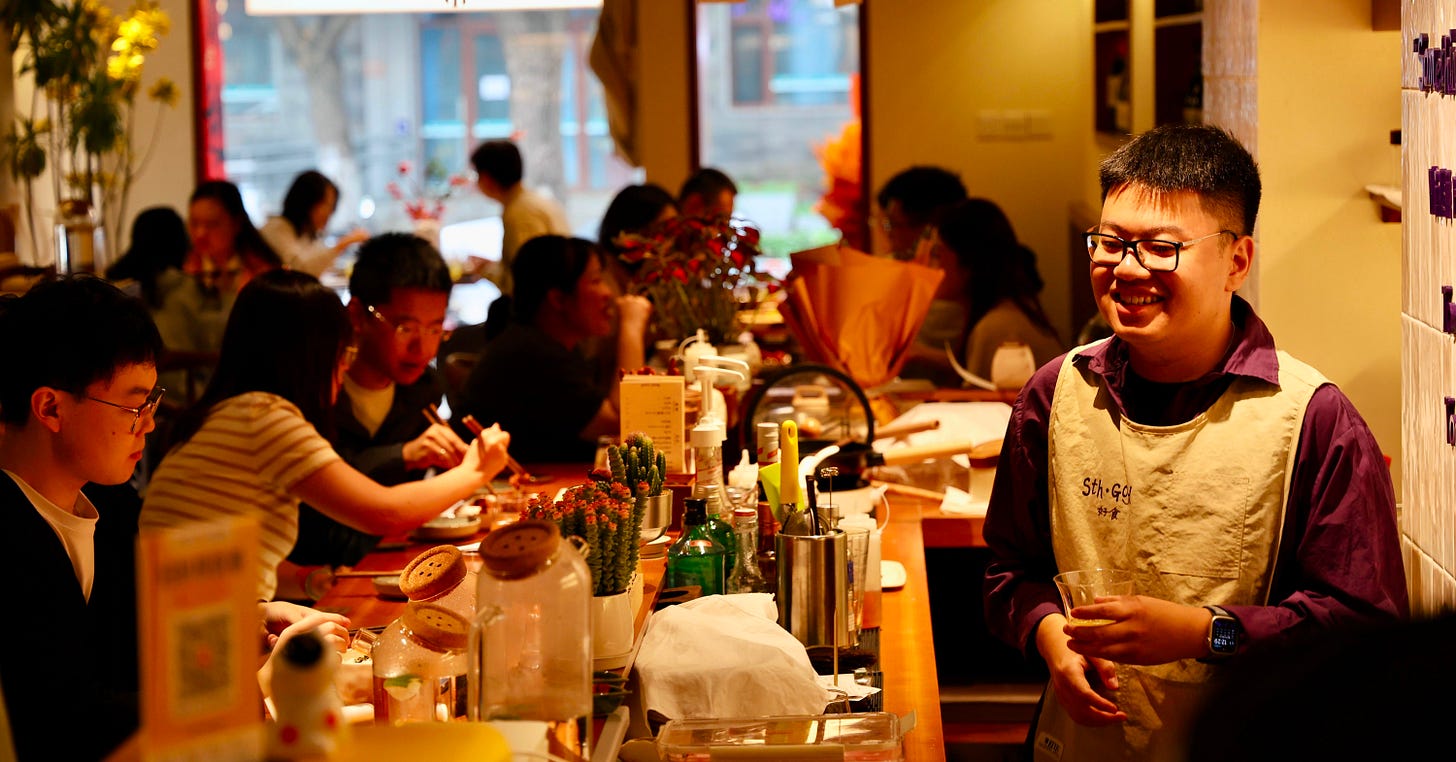Can a Local Supermarket Save China’s Offline Retail Sector?
How Pangdonglai is thriving with a one-of-a-kind model amid economic downturn; why a 1,000-year-old Chinese goddess flies commercial every year; what’s fueling China’s bistro craze, and more
Hello TWOC readers!
Happy (early) Labor Day! Hope you’re ready for a well-deserved break.
To mark the occasion, we’ve selected a few stories from our archives on the origins and history of Labor Day, or International Workers’ Day, along with language-inspired pieces that celebrate the spirit of hard work—from poems that pay tribute to the working class to chengyu that capture the essence of perseverance and toil.
Check them out:
How Labor Day Shaped Modern China
Ancient Poems About Laborers’ Plight
Choice Chengyu: All in a Day’s Work
In case you missed our updates during the pre-holiday rush, our reporter traveled to Xuchang, Henan province, to uncover the magic behind China’s most viral supermarket.
Read on to find out more:
👇👇👇
Can a Local Supermarket Save China’s Offline Retail Sector?
At a time when the retail landscape in China is undergoing a crisis—with multinational giants like Carrefour closing stores and customer spending continuing to tighten due to economic pressures—Pangdonglai, a retailer in the obscure regional city of Xuchang has defied the odds with its reputation for considerate service, strict quality control, fair prices, and employee benefits. But its success has proven difficult to replicate, with other chains attempting—and failing—to imitate its model. Read more
Divine Departure: When a Goddess Flies Commercial
Every year, lucky airline passengers like Chen might spot the sea goddess herself on board—seated in first class with a boarding pass issued under her mortal name, Lin Mo (林默), complete with a national ID number. But far from an airline PR campaign, the journey of the Mazu statues embodies a millennium-old tradition connecting coastal communities from Fujian fishing villages to Singapore’s megaports. Read more
Where Red Pepper Meets Rosé: Yunnan and Guizhou Flavors Fuel China’s Bistro Craze
Over the past few years, the dining scene in China’s major metropolises has undergone “bistro-ification.” The high-end wine bar decor and niche provincial flavors from China’s rural, mountainous southwest may seem like an unlikely pairing, but many emerging “Yun Gui Chuan bistros” are quickly gaining ground in the ever-shifting battle for Chinese bellies, though some question if the quality justifies the high prices and whether the trend is built to last. Read more
Where We’re Traveling
Borderline Addicted: How Shenzhen Became Hongkongers’ Weekend Escape Plan
Just a decade or two ago, it was mainlanders flocking to Hong Kong for luxury goods, dim sum feasts, and a taste of cosmopolitan life. Now, the roles seem to have reversed. Increasingly, Hong Kong residents—many of them weekend regulars—are hopping on the train to Shenzhen, lured by its vibrant food scene, sprawling malls, and cultural attractions that are reshaping ideas of what a mainland city can offer. Read more
What We’re Reading
The Dreams of Tang Xianzu, the “Shakespeare of the East”
The moniker “Shakespeare of the East” has been used to describe Ming dynasty writer Tang Xianzu in Chinese academic circles since at least 1985. Both writers were active during the mid-16th century, and both passed away in the year 1616. But while everyone in the Anglophone and Chinese spheres knows the name William Shakespeare, few in the West have heard of Tang Xianzu (汤显祖). Who was he, and why does he merit comparison to the English language’s greatest literary figure? Read on to find out






